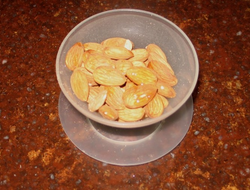Protein, physical activity, and exercise
Published: December 01, 2022
An array of protein shakes and supplements are promoted as being essential for good athletic performance, muscle repair, and muscle maintenance and growth.
You may be persueded that food alone cannot provide you with sufficient protein.
There are some instances when physically active people may need to supplement their food intake with protein supplements.
However, the majority of physically active people in North America can get enough protein from the food they eat.
That is if you have a balanced eating plan that meets your nutritional requirements.
Dietary protein’s major function is to provide you with enough amino acids (particularly essential amino acids).
Your body uses dietary protein to synthesise all the proteins your body needs to function optimally.
The synthesis of muscle proteins, and other body proteins, while significant is not the only demand on absorbed amino acids.
A small percentage of amino acids are converted to glucose in the natural course of your metabolism and used as energy.
Absorbed amino acids not used for protein or glucose synthesis may be converted to pyruvate a molecule used in energy metabolism and other metabolic processes.
Excess amino acids can also be converted into fat which is stored in your fat stores.
Depending on the type and duration of your physical activity or exercise session between 5-10% of your energy requirement is provided by protein.
While dietary protein may indirectly contribute to this source of energy, most will come from catabolism of your body proteins during metabolism.
Despite this small contribution to your energy requirement, protein containing foods (such as eggs), and protein shakes and supplements are often promoted as if protein is a major contributor to energy.
Furthermore, protein supplements, in the form of protein powders and amino acid supplements, have not been scientifically identified as being superior to dietary protein for muscle synthesis.
Conversely, these supplements may not provide you with the full range of macro and micro nutrients, and phytochemicals your body needs that whole foods in a balanced eating plan do.
Do you need protein or amino acid supplements, or can you get the protein you need from the food you consume? Follow the link for the full article.
References
1.
Benardot, D. (2006). Advanced Sports Nutrition. Human Kinetics. USA
2.
Whitney, E. & Rady Rolfes, S. (2005). Understanding Nutrition. Belmont, CA: Thomson Wadsworth
3.
Centre for Science in the Public Interest (10/2010, 05/2008, 04/2014)

